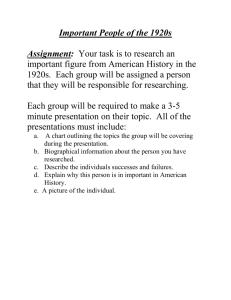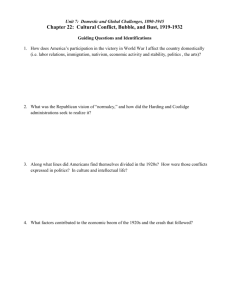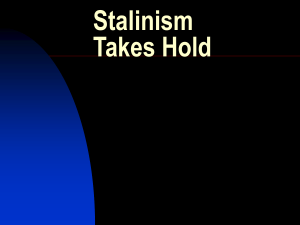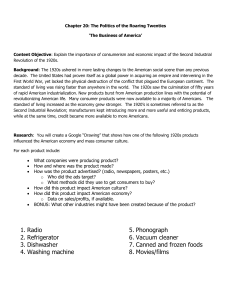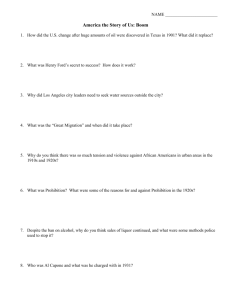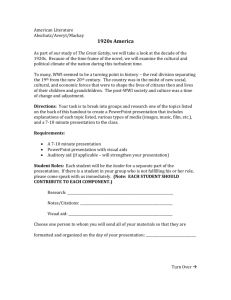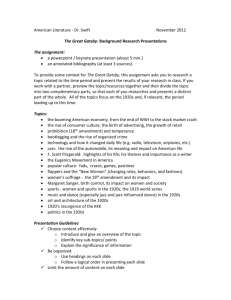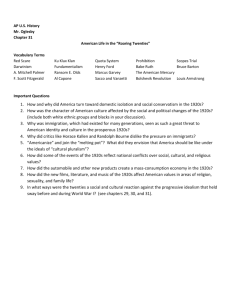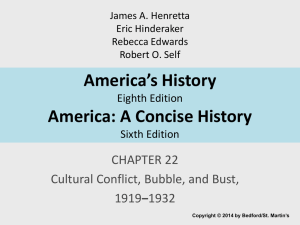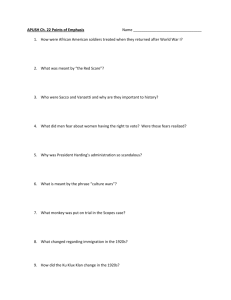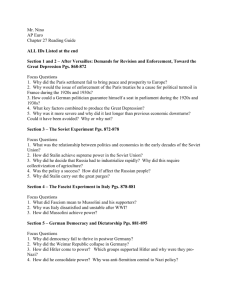AP European History - Solon City Schools
advertisement
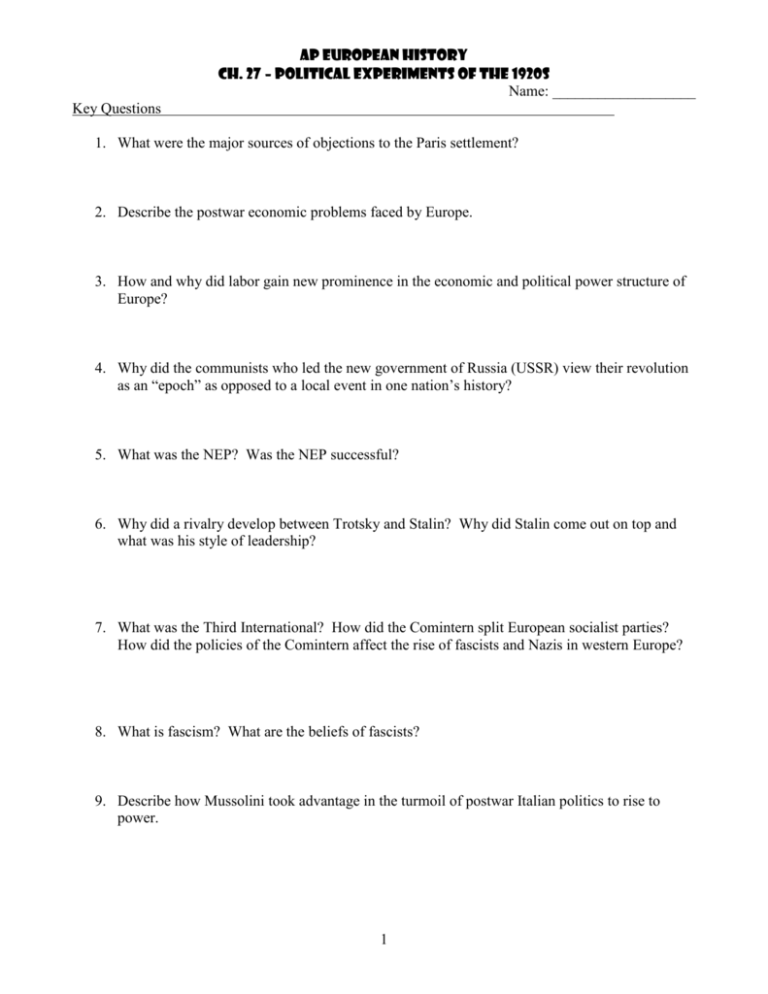
AP European History Ch. 27 – Political Experiments of the 1920s Name: ___________________ Key Questions 1. What were the major sources of objections to the Paris settlement? 2. Describe the postwar economic problems faced by Europe. 3. How and why did labor gain new prominence in the economic and political power structure of Europe? 4. Why did the communists who led the new government of Russia (USSR) view their revolution as an “epoch” as opposed to a local event in one nation’s history? 5. What was the NEP? Was the NEP successful? 6. Why did a rivalry develop between Trotsky and Stalin? Why did Stalin come out on top and what was his style of leadership? 7. What was the Third International? How did the Comintern split European socialist parties? How did the policies of the Comintern affect the rise of fascists and Nazis in western Europe? 8. What is fascism? What are the beliefs of fascists? 9. Describe how Mussolini took advantage in the turmoil of postwar Italian politics to rise to power. 1 AP European History Ch. 27 – Political Experiments of the 1920s Name: ___________________ 10. Describe how Mussolini consolidated his power and the power of the Fascist Party once he and the party were power. 11. How did Mussolini make “peace” with the Roman Catholic Church? 12. How did France look to new alliances after World War I? 13. Why did Germany and the USSR sign a treaty after WWI? What did the treaty say? 14. Describe how control of French politics moved between conservative and leftist control during the 1920s. 15. How did French relations with Germany change during the 1920s? 16. How did British politics change in the postwar years with regard to political parties? 17. How did control of the House of Commons shift between parties in the 1920s? 18. How did the Labour Party become a mainstream political force in British politics? What impact did the rise of the Labour Party have on the Liberal Party? 19. How did World War I change Britain’s relations with her dominions? 20. How did the Irish continue to fight for independence from Great Britain? How did the British government handle the continued call in Ireland for independence? 2
